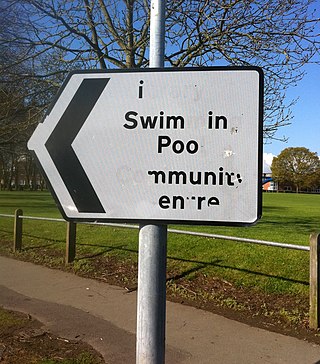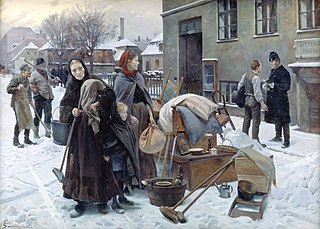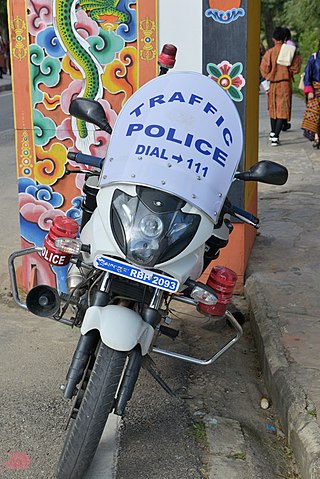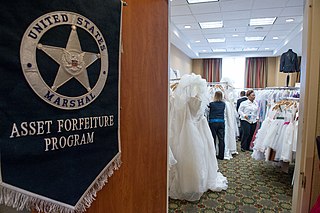
Organized crime is a category of transnational, national, or local groupings of highly centralized enterprises run by criminals to engage in illegal activity, most commonly for profit. While organized crime is generally thought of as a form of illegal business, some criminal organizations, such as terrorist groups, rebel forces, and separatists, are politically motivated. Many criminal organizations rely on fear or terror to achieve their goals or aims as well as to maintain control within the organization and may adopt tactics commonly used by authoritarian regimes to maintain power. Some forms of organized crime simply exist to cater towards demand of illegal goods in a state or to facilitate trade of goods and services that may have been banned by a state. Sometimes, criminal organizations force people to do business with them, such as when a gang extorts money from shopkeepers for "protection". Street gangs may often be deemed organized crime groups or, under stricter definitions of organized crime, may become disciplined enough to be considered organized. A criminal organization can also be referred to as a gang, mafia, mob, (crime) ring, or syndicate; the network, subculture, and community of criminals involved in organized crime may be referred to as the underworld or gangland. Sociologists sometimes specifically distinguish a "mafia" as a type of organized crime group that specializes in the supply of extra-legal protection and quasi-law enforcement. Academic studies of the original "Mafia", the Italian Mafia, which predates the other groups, generated an economic study of organized crime groups and exerted great influence on studies of the Russian mafia, the Chinese Triads, the Hong Kong Triads, and the Japanese Yakuza.

The police are a constituted body of persons empowered by a state, with the aim to enforce the law, to ensure the safety, health, and possessions of citizens, and to prevent crime and civil disorder. Their lawful powers include arrest and the use of force legitimized by the state via the monopoly on violence. The term is most commonly associated with the police forces of a sovereign state that are authorized to exercise the police power of that state within a defined legal or territorial area of responsibility. Police forces are often defined as being separate from the military and other organizations involved in the defense of the state against foreign aggressors; however, gendarmerie are military units charged with civil policing. Police forces are usually public sector services, funded through taxes.

Vandalism is the action involving deliberate destruction of or damage to public or private property.

Extortion is the practice of obtaining benefit through coercion. In most jurisdictions it is likely to constitute a criminal offence; the bulk of this article deals with such cases. Robbery is the simplest and most common form of extortion, although making unfounded threats in order to obtain an unfair business advantage is also a form of extortion.

A landlord is the owner of a house, apartment, condominium, land, or real estate which is rented or leased to an individual or business, who is called a tenant. When a juristic person is in this position, the term landlord is used. Other terms include lessor and owner. The term landlady may be used for the female owners. The manager of a pub in the United Kingdom, strictly speaking a licensed victualler, is referred to as the landlord/landlady. In political economy it refers to the owner of natural resources alone from which an economic rent, a form of passive income, is the income received.

Eviction is the removal of a tenant from rental property by the landlord. In some jurisdictions it may also involve the removal of persons from premises that were foreclosed by a mortgagee.
Confiscation is a legal form of seizure by a government or other public authority. The word is also used, popularly, of spoliation under legal forms, or of any seizure of property as punishment or in enforcement of the law.
Section 8 of the Housing Act of 1937, often called Section 8, as repeatedly amended, authorizes the payment of rental housing assistance to private landlords on behalf of low-income households in the United States. Fort Lauderdale, Florida Housing Authority Director William H. Lindsey, upon the advice of Housing Authority attorney J. Richard Smith, initially developed 11(b) financing in the early 1970s to accommodate a local savings and loan interested in assisting with urban renewal projects Lindsey eventually brought to fruition. This was the initial impetus for the subsequent development of the now well known Section 8 Program. 68% of total rental assistance in the United States goes to seniors, children, and those with disabilities. The U.S. Department of Housing and Urban Development manages Section 8 programs.

A fence, also known as a receiver, mover, or moving man, is an individual who knowingly buys stolen goods in order to later resell them for profit. The fence acts as a middleman between thieves and the eventual buyers of stolen goods who may not be aware that the goods are stolen.

In criminology, public-order crime is defined by Siegel (2004) as "crime which involves acts that interfere with the operations of society and the ability of people to function efficiently", i.e., it is behaviour that has been labelled criminal because it is contrary to shared norms, social values, and customs. Robertson (1989:123) maintains a crime is nothing more than "an act that contravenes a law". Generally speaking, deviancy is criminalized when it is too disruptive and has proved uncontrollable through informal sanctions.

In criminology, rational choice theory adopts a utilitarian belief that humans are reasoning actors who weigh means and ends, costs and benefits, in order to make a rational choice. This method was designed by Cornish and Clarke to assist in thinking about situational crime prevention.

The Ethics of Liberty is a 1982 book by American philosopher and economist Murray N. Rothbard, in which the author expounds a libertarian political position.
Intelligence-led policing (ILP) is a policing model built around the assessment and management of risk. Intelligence officers serve as guides to operations, rather than operations guiding intelligence.

Bhutan has a low crime rate. Incidents of petty crime are occasionally reported in the country. Violent crime is very uncommon. Some cases of drug abuse are reported; alcohol abuse is a problem. But in general, drug trafficking is low. The most serious threat to Bhutan's security is terrorism by different terrorist groups from neighboring countries illegally camped in the nation.
In common law jurisdictions such as England and Wales, Australia, Canada, and Ireland, a freehold is the common mode of ownership of real property, or land, and all immovable structures attached to such land. It is in contrast to a leasehold, in which the property reverts to the owner of the land after the lease period expires or otherwise lawfully terminates. For an estate to be a freehold, it must possess two qualities: immobility and ownership of it must be forever. If the time of ownership can be fixed and determined, it cannot be a freehold. It is "An estate in land held in fee simple, fee tail or for term of life."
Nuisance abatement is a growing area within policing and code enforcement. The term refers to using building codes, fire codes, zoning, etc. in order to improve the quality of life and resolve life safety issues within neighborhoods. Nuisance abatement programs are most often a component of problem oriented or community policing programs. In most Canadian jurisdictions, bylaw enforcement officers handle nuisance abatement.

Community policing or community-oriented policing (COP) is a strategy of policing that focuses on developing relationships with community members. It is a philosophy of full-service policing that is highly personal, where an officer patrols the same area for an extended time and develops a partnership with citizens to collaboratively identify and solve problems.
The idea of regulatory crime control is to reduce and control crime. Many factors can make a place or area a victim of criminal activity. John and Emily Eck, two primary scholars that work within the area of regulatory crime control, explain how places can either create crime opportunities or crime barriers (2012). Eck also defines the two types of regulatory crime control strategies as ends-based and means-based. He states that means-based strategies focus on the use of different procedures and technologies, while ends-based strategies concentrate on the overall outcome (2012). Another primary scholar, Graham Farrell, discusses how repeat victimisation is becoming an important area for policing and crime control.

Civil forfeiture in the United States, also called civil asset forfeiture or civil judicial forfeiture, is a process in which law enforcement officers take assets from people who are suspected of involvement with crime or illegal activity without necessarily charging the owners with wrongdoing. While civil procedure, as opposed to criminal procedure, generally involves a dispute between two private citizens, civil forfeiture involves a dispute between law enforcement and property such as a pile of cash or a house or a boat, such that the thing is suspected of being involved in a crime. To get back the seized property, owners must prove it was not involved in criminal activity. Sometimes it can mean a threat to seize property as well as the act of seizure itself. Civil forfeiture is not considered to be an example of a criminal justice financial obligation.
A nuisance ordinance, also referred to as a crime-free ordinance or a disorderly house ordinance, is a local law usually passed on the town, city, or municipality level of government that aims to legally punish both landlords and tenants for crimes that occur on a property or in a neighborhood. These laws impose penalties under programs referred to as nuisance abatement when crimes are reported, regardless of whether crimes actually occurred or what the police action entailed. The result of these ordinances is for landlords to tell tenants to not report crimes, refuse to renew the lease of anyone involved in reporting a crime, and eviction of tenants involved in any crimes, even if the tenants were the victims of said crimes.










